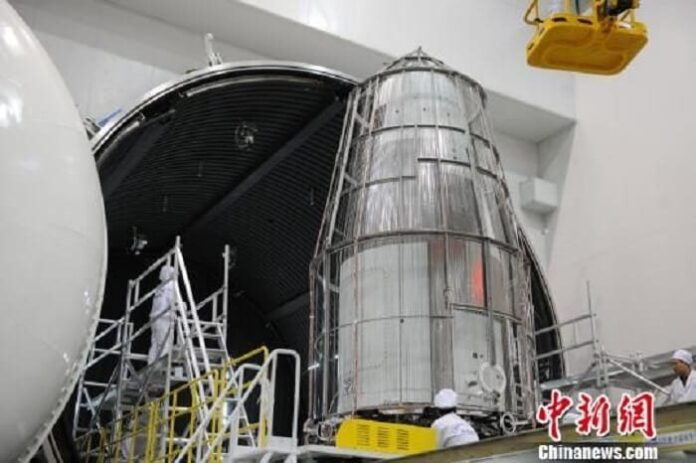China will be launching their satellite, the 600 kg QUESS craft sometime in August. This is the first ever satellite to perform quantum experiments in space. Onboard the satellite is a crystal which will create pairs of entangled photons, which will be blasted at China and Austria. This is to test if even 1,200 km apart, these photons will remain together.
Since the rules of quantum physics state that entangled particles are linked, if you change the property of one, the other will also change, so the particles should stay linked even light years apart, however there are still doubts. This is why the satellite team will perform a Bell test with linked photons in China and Austria, a Bell test is done to demonstrate the outcomes of entangled particles in quantum mechanics.
In addition, the particle entanglement principle can also help encryption. Because one change changes the other particle too, by measuring a photon, the other one would instantly change which would allow both teams in China and Austria to know when there is a breach. This has been tested before, but only 300 km apart on the ground. This would not work however because air and optical fibres will gradually make the photons disperse. This is why the QUESS satellite will be in space, where there is clear space for the photons.
Researchers will also conduct an experiment on the ISS to consistently entangle photons, this is called hyperentanglement. This is supposed to make the quantum teleportation reliable.
The first satellite will be in space for about 2 years, if the experiment goes well, then the team will send more into space, they estimate about 20 satellites is needed for a solid quantum connection, creating a whole quantum network. “The quantum network is likely going to have combination of a satellite and ground based links,” claims Anton Zeilinger.
With this research going on, quantum teleportation could possibly exist in the future, with researchers being able to combine the photons from satellites to form a telescope with an outstanding resolution being able to see text on jupiter. “This definitely a race,” says Chaoyang Lu, a physicist at the University of science and technology in China.
Due to the fact that other countries, such as Canada, Italy, Japan and Singapore also have plans for quantum connections. If China is successful, then that means other countries will be able to get their hands on them for a lower funding.









